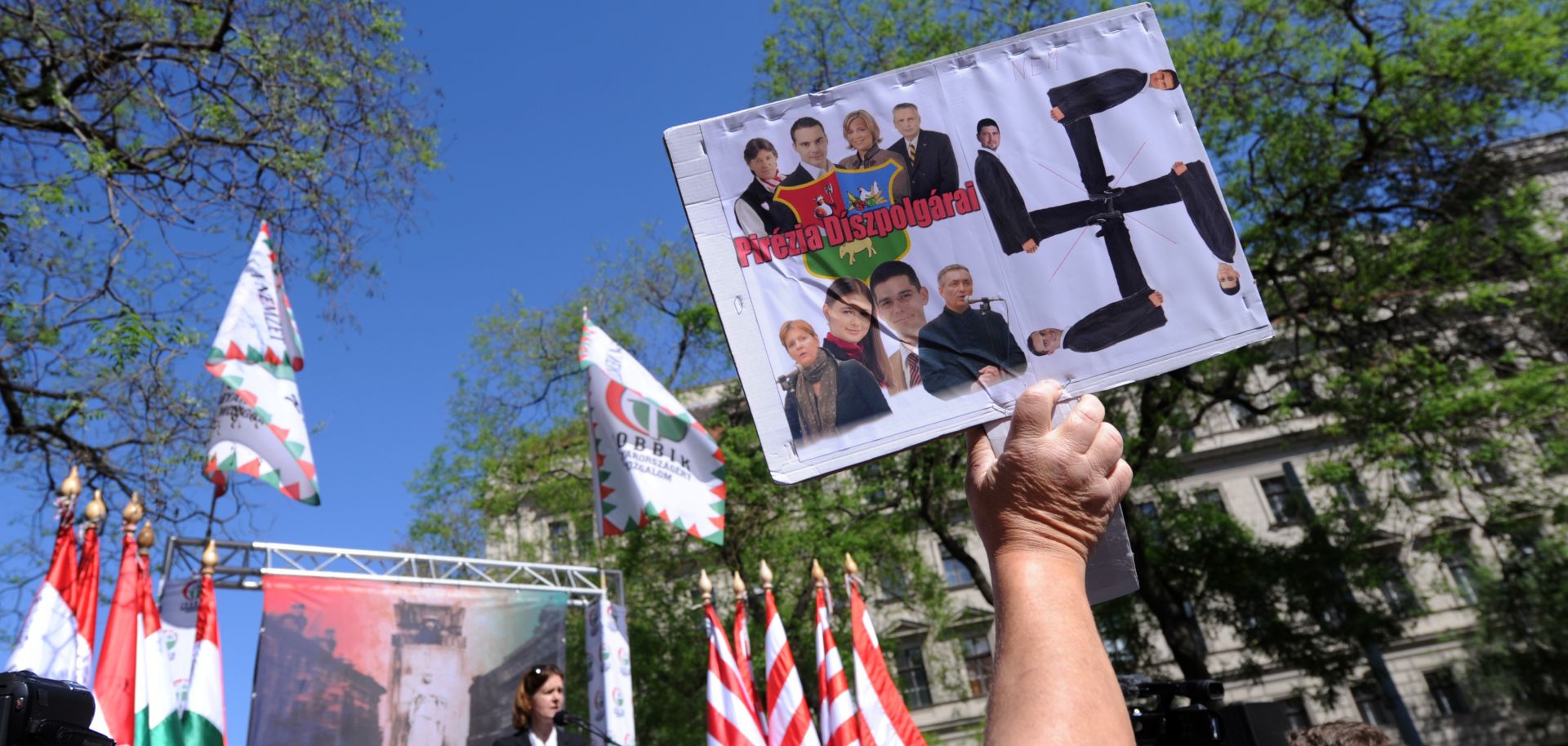GLOBAL PERSPECTIVES
The Kremlin Connections of the Hungarian Far-Right
Apr 20, 2015 | 14:52 GMT

An anti-demonstrator lifts a home-made picture with a Swastika and photos of the party leaders and representatives of the nationalist party of the Hungarian Parliament, during a demonstration of the nationalist party in Budapest downtown, nearby the parliament building on May 4, 2013.
(ATTILA KISBENEDEK/AFP/Getty Images)
Subscribe Now
SubscribeAlready have an account?
